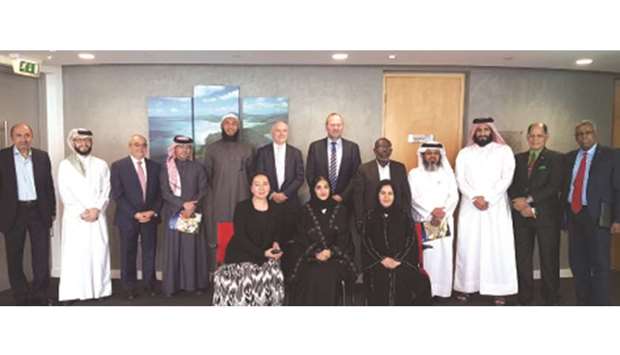The University of South Australia (UniSA) is exploring research and academic collaboration with Qatar aimed at fostering cultural understanding and exchanges between the two countries.
Professor Mohamad Abdalla, the director of UniSA’s Centre for Islamic Thought and Education (CITE), along with UniSA’s School of Education Division dean and head, associate professor Graham Hardy, met with representatives from various academic and cultural institutions in Qatar at a roundtable discussion organised by the Australian embassy in Doha yesterday. It was attended by Australian ambassador Axel Wabenhorst.
“The purpose of this visit is to build bridges of understanding between cultures, in this case, Australia and Qatar and the Arab world not only at the institutional level but also at the student level,” said Abdalla.
Abdalla is one of Australia’s most prominent and respected Australian Muslim leaders combining the roles of an academic scholar, public intellectual, community leader and commentator. He said the prospect of having a joint relationship with Qatar is quite high, citing a memorandum of understanding they signed with Qatar University in July during the delegation’s visit to Doha last year.
“There is a good potential for collaboration (with Qatar),” he stressed, expressing optimism for student exchanges and research programmes between the two countries. The idea of attracting more Qatari students to study in UniSA and other Australian universities was also raised during the talk, according to Abdalla.
“The common response was that Australia is perceived as a very far country and it is not much known among the Qatari population in terms of education, schooling and university,” he pointed out during the talk. Abdalla said some suggested on how to improve and resolve such concerns like attending conferences, participating in the education expo that Qatar organise, and speaking to parents, among others. The discussion also tackled issues of common interests whether interfaith dialogue, domestic violence in faith-based communities or the possibility of a joint research with partners from Qatar Foundation. About conducting and extending research works on Islam and Muslims in Australia, he said the country has “ample room and space for institutions” such as CITE to pursue such academic endeavour. “The Australian government is very supportive, they fund Islamic schools, which are about 62 there, and we are working on young Australian Muslims on issues about culture and identity, and so on,” Abdalla said. Hardy echoed his colleague’s statement saying UniSA is keen to work with different Qatari institutions on academic and research projects.
“We are very much hoping that there will be student exchanges in both directions, and there seems to be interest and motivation around the table for that to happen,” he said. “Part of our visit is to make sure that Australian universities are known about and well represented with local students. Australia has world-class universities,” Hardy noted. “The university I represent, UniSA is a world-class university and we welcome Qatari students with open arms.”
He said they have excellent induction programmes to enable students to transfer easily from Qatar to Australia.

Mohamad Abdalla, Graham Hardy, and Australian ambassador Axel Wabenhorst join representatives from various academic and cultural institutions in Qatar at a roundtable discussion yesterday at the Australian embassy in Doha. PICTURE: Joey Aguilar

